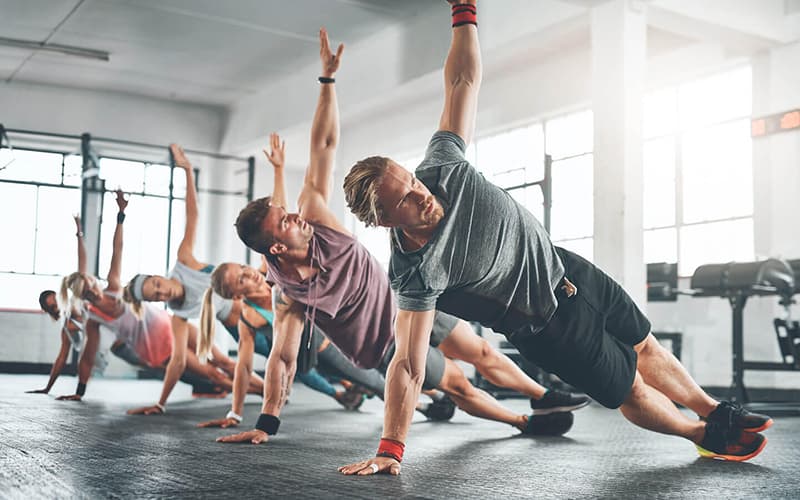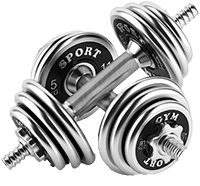Enhancing your physique and overall health through positive changes in body composition is a goal pursued by many. From those seeking a transformation in appearance to individuals preparing for physique events, the journey to refine body composition involves various aspects.
The foundation of sustainable body composition improvements rests on health-oriented dietary and fitness practices that promote holistic well-being. Delve into the concept of body composition and discover ways to enhance it in the sections below.
Body composition refers to the distribution of fat, muscle, bone, water, and other tissues within the body. Most commonly, individuals aiming to understand or enhance their body composition concentrate on body fat and muscle percentages.
Lean body mass pertains to your total body weight minus the weight of body fat, also termed as fat-free mass. Although often equated solely with muscle mass, lean body mass encompasses all non-fat tissues in the body, encompassing organs, bones, nerves, hair, ligaments, and more.
Balancing body fat within healthy limits contributes to reduced risks of overall mortality, while inadequate lean body mass, encompassing muscle and bone, heightens mortality risks. Carrying excess body fat can elevate susceptibility to conditions such as heart disease, metabolic syndrome, high blood pressure, and type 2 diabetes.

Efforts to enhance your existing body composition necessitate alterations in diet, exercise, and various other factors including sleep, hormones, and stress levels.
Nutritional choices influence body composition, affecting muscle, fat, bone, and water ratios. While “improving body composition” is subjective, focusing on increasing muscle mass, reducing fat mass, or achieving weight loss or gain can guide your goals.
In simple terms, weight hinges on caloric intake versus expenditure. Consuming more calories leads to weight gain, fewer calories result in weight loss, and a balance maintains weight. However, the nature of weight change, whether predominantly from fat or lean mass, depends heavily on dietary habits.
Nutrition significantly shapes body composition, but results might not always be immediate due to factors like genetics, hormones, and medical conditions. Research underscores protein intake’s pivotal role in weight loss outcomes, safeguarding muscle tissue during fat reduction and promoting improved body composition by retaining lean mass.
Studies differ, but consuming 25–30% of calories from protein may enhance weight loss compared to low-protein diets. For active individuals pursuing body composition changes, a higher protein intake is necessary to support activity and recovery. Aim for 1.2 to 2.0 grams of protein per kilogram of body weight per day, tailored to your training regimen.
To build muscle mass, increasing caloric intake alongside protein consumption is crucial. Adapting your diet to foster muscle gain involves consuming more calories than expended, prioritizing protein and carbohydrates for training, recovery, and muscle growth, while including healthy fats for hormonal balance.
Exercise notably shapes body composition by augmenting muscle mass. Resistance training benefits individuals with excess body fat, impacting lean and fat mass percentages, unlike aerobic exercise that mainly affects fat mass.
To achieve desired body composition changes, exercise is indispensable. Relying solely on diet for weight loss can lead to muscle loss, hindering metabolic adaptations and desired transformations.
Sleep, stress, and hormones also influence body composition. Sleep deficiency affects hormones controlling hunger and cravings, potentially disrupting nutrient intake. Inadequate sleep hampers physical activity and recovery, impeding muscle gain and fat loss.
Optimal sleep supports growth hormone release, pivotal for muscle growth and fat loss. Hormonal shifts due to conditions like PCOS or age-related changes can challenge fat loss or muscle gain. Stress affects food choices, hormones, and more, hindering desired outcomes.
Incorporating stress reduction and sleep-promoting practices counteracts these effects. In cases of significant stress or hormonal imbalances, consulting a healthcare professional is advised.
To devise a productive workout routine for improved body composition, initiate with at least two weekly strength training sessions for major muscle groups. For optimal results, consider splitting workouts into 3 to 4 sessions per week, gradually increasing sets and reps to build muscle.
For those inclined towards cardio, adding 2 or more sessions per week aids in fat loss but doesn’t significantly contribute to lean mass gain. Incorporating preferred cardiovascular activities and augmenting daily activity through natural movements can enhance calorie expenditure.
Striving for positive changes in body composition is a worthy pursuit with holistic health benefits. Prioritize protein intake, maintain a balanced exercise regimen, and manage stress to aid in your journey. For personalized guidance on body composition goals, consult a healthcare professional.

